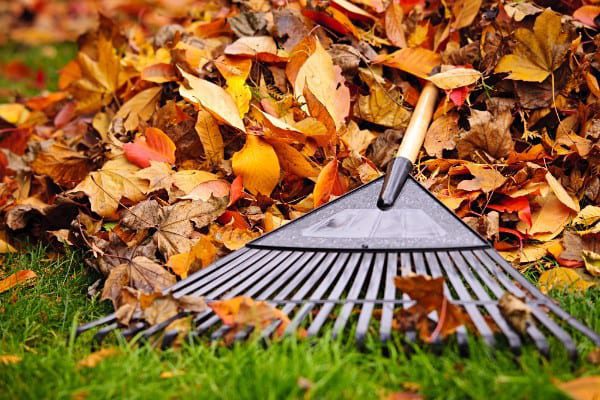There’s nothing quite like the colors of fall. The brilliant reds, yellows and oranges are a spectacular site to see as they fall gracefully to the ground outside your window. As beautiful as they are, fallen leaves left to rot in your yard can cause damage to grasses and limit the lawn’s ability to return healthy and vibrant come springtime.
Leaf removal not only makes your yard look neater and cleaner in the fall; it also plays an important role in maintaining the health of your lawn. Removing leaves promptly eliminates mold growth and bacteria, ensures that grasses receive the appropriate amount of crucial sunlight, and discourages pests from making their homes in stationary leaf piles.
Lawns need air and light in order to thrive. Leaves left to sit block these necessities and suffocate the lawn, weakening the root systems and creating dead patches over time. Leaves that accumulate too long can get wet and begin to mold, creating the perfect breeding ground for tree diseases and other bacteria. These cozy, damp environments then attract pests which will do their best to spend the colder months nestled deep within your grasses and leaf piles, possibly causing further damage that will be difficult to repair in the spring.
While rotting leaves are bad news for the health of your lawn, gardens and delicate plants may actually appreciate the extra nutrients and warmth this winter. Leaves that would otherwise be bagged and sent away can be turned to mulch and used around shrubs and perennial beds to keep soil moist and warm after winter sets in.
To really give your lawn the best chance for a healthy return in the spring, give the professionals at JFC Grounds Maintenance the opportunity to take over your fall yard work. While raking and mulching are a good start, there is so much more involved in keeping your landscape beautiful and healthy during the cooler months. Give us a call and we can work together to chart the best course of action, protecting your landscape this winter and giving it a healthy head start next spring.
